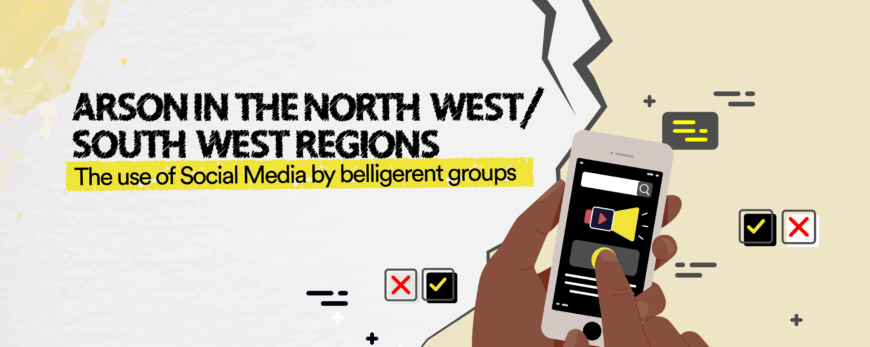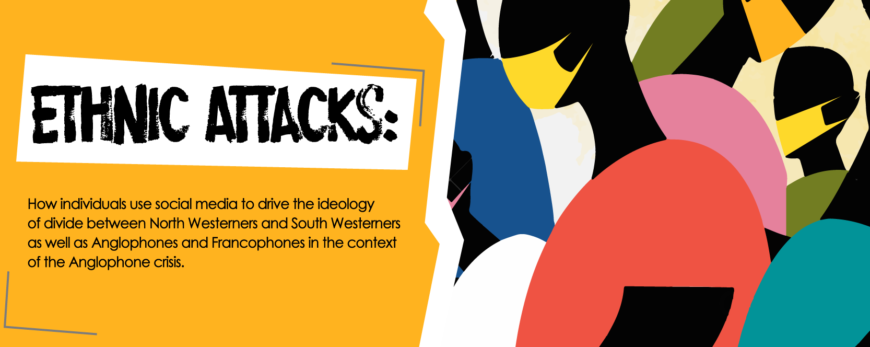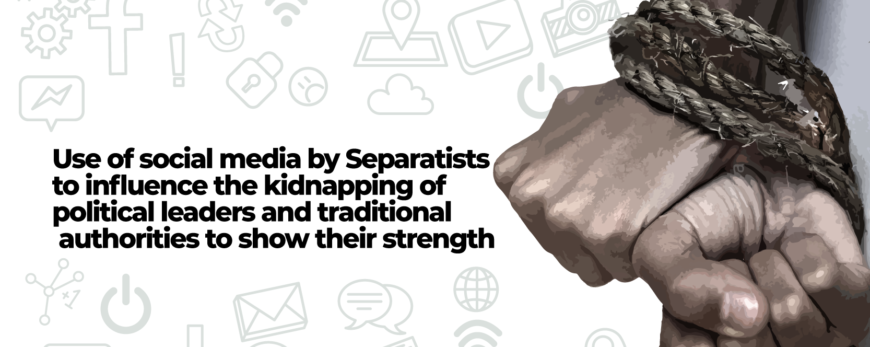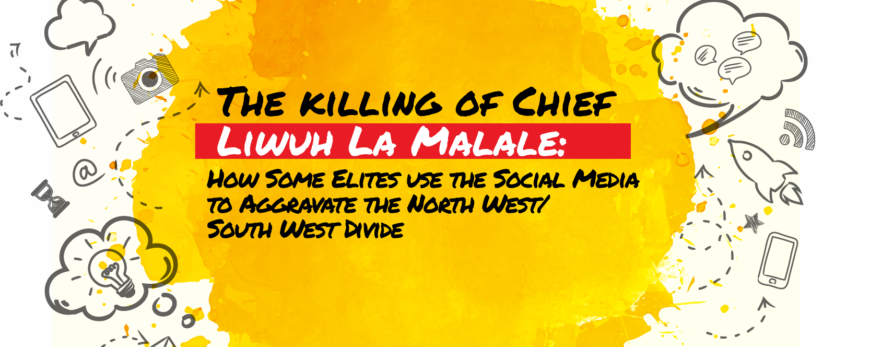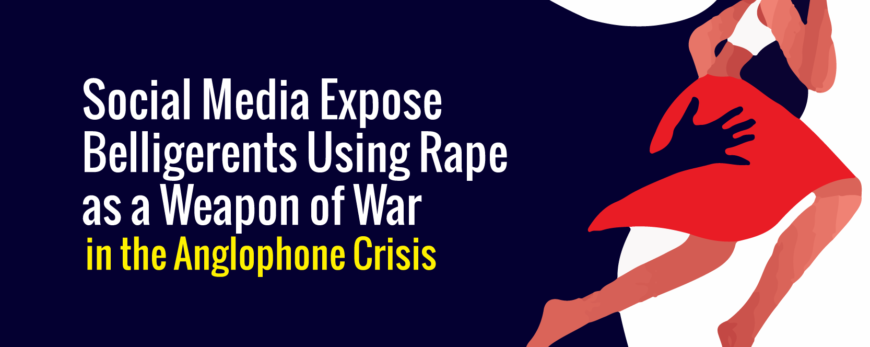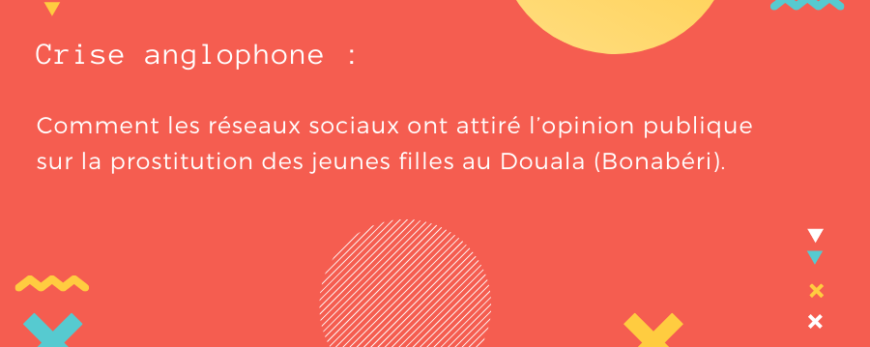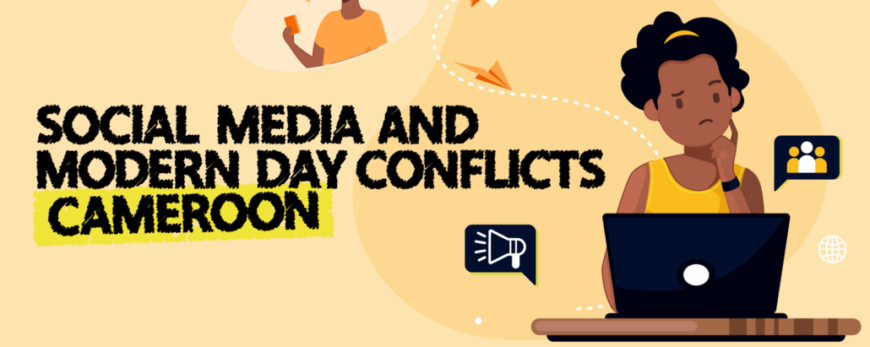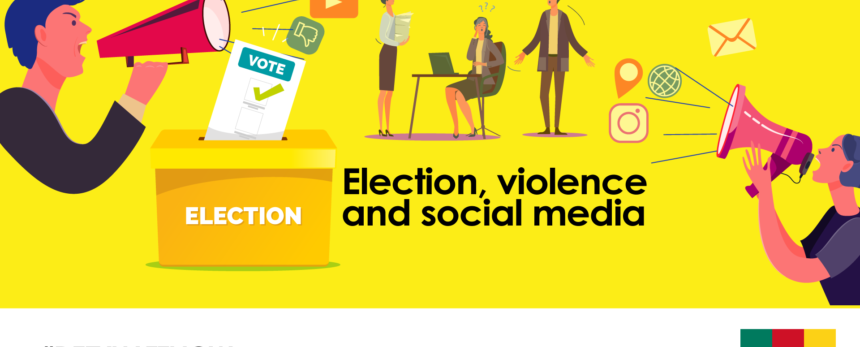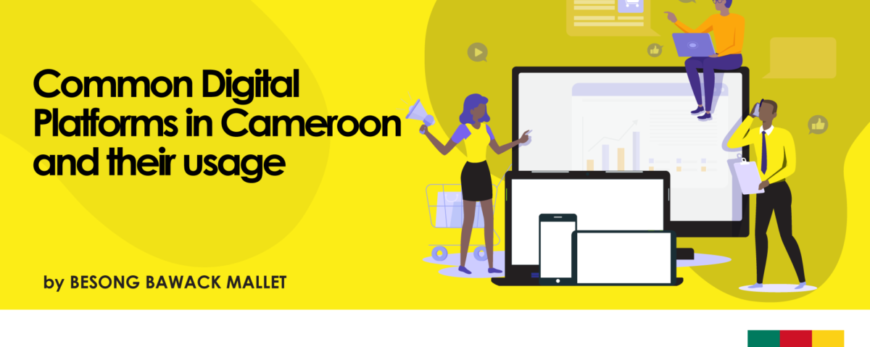Category: Social Media Health Reports
Arson in the North-West/South-West regions:
The use of Social Media by belligerent groups According to Miriam Webster dictionary, “arson” is the willful or malicious burning of property (such as a building), especially with criminal or fraudulent intent. Meanwhile, dictionary.cambridge.org defines“arson” as a noun and the crime of intentionally starting a fire to damage or destroy something, especially a building and provides synonyms like; to burn down or burn something down, burn to the ground, go up in flames, go up in smoke, consume and more. Dictionary.cambridge.org defines belligerent as wishing
Read MoreEthnic Attacks: “How individuals use social media to drive the ideology of divide between North Westerners and South Westerners as well as Anglophones and Francophones in the context of the Anglophone crisis.”
By Maikem Emmanuela Manzie Merriam Webster defines social media as forms of communication, such as websites for social networking and microblogging. Users create online communities to share information, ideas, personal messages and other content such as videos. Wikipedia.org defines the Anglophone crisis as the conflict in the southern Cameroons region of Cameron, part of the long-standing Anglophone problem Cameroon is divided into English and French cultures with over 200 languages. The English regions make up 20% of the country while Francophones make up 80%. As
Read MoreKidnapping of political figures: Use of social media by Separatists to influence the kidnapping of political leaders and traditional authorities to show their strength.
The Anglophone Crisis that started with a strike by teachers and later Common Law lawyers demanding for better recognition of the Anglo-Saxon system alongside the French system that had dominated the educational and law sectors in 2016. It later became an armed conflict with a cross section of youths taking up arms against the state in the early years of 2018 with the name Ambazonian fighters or separatist fighters. As we moved into mid-2018 and 2019 till date the war became bloody with kidnappings for
Read MoreThe killing of Chief of Liwuh La Malale: How Some Elites use the Social Media to Aggravate the North West/South West Divide
As the Anglophone crisis continues to take turns for the worst, Chief Ewome John Eko alias Moja Moja, of Bwassa village in Buea Sub Division of Fako Division, South West Region of Cameroon and a soldier in the Cameroon Defense and Security Force has continuously used hate languages against the people of the North West region and their Traditional Rulers. His vile attacks have particularly targeted those living in Fako Division. Following the brutal attack and killing of Chief Molinga Francis of Liwu la-Malale village
Read MoreSocial Media Expose Belligerents Using Rape as a Weapon of War in the Anglophone Crisis
The Anglophone crisis that started as a peaceful protest later became a bloody war with killings and burning down of houses by both separatist fighters and the forces of law and order, forcing many to flee to safer places within and out of Cameroon. Women and girls have been more affected by the crisis, and the recent wave has seen the fighting parties using rape as a weapon of war. Cases of sexual abuse have been reported with accusing fingers pointing at either of the
Read MoreThème : Crise anglophone : Comment les réseaux sociaux ont attiré l’opinion publique sur la prostitution des jeunes filles au Douala (Bonabéri).
PLAN1- Définition des concepts2- Introduction3- Corpus4- Conclusion5- Recommandation 1.Définition des concepts Crise anglophone : Crise socio-sécuritaire qui sévit dans les régions du Nord- Ouest et Sud-Ouest du Cameroun depuis 2016.Opinion publique : Désigne l’ensemble des convictions et des valeurs, des jugements, des préjugés et des croyances plus ou moins partagés par lapopulation d’une société donnée.Prostitution : Le fait de livrer son corps aux plaisirs sexuels d’autrui pour de l’argent et d’en faire métier.Jeunes filles : Jeune personne de sexe féminin, dont l’âge indéterminé se situe
Read MoreSocial Media & Modern Day Conflicts – Cameroon
Traditionally, the media has always been the main source of information in times of conflict, and it affects how people see the ‘other’ side. However, the introduction of social media has completely changed how the public consumes news; it is now more interactive and instantaneous. Social media is an excellent platform to project personal views and for people to form groups with a specific cause in mind. The flipside to this is people can become immediately divided into different ‘camps’ when a political decision is
Read MoreElections, violence and social media
Legislative and local council elections in Cameroon have taken place even though they were overshadowed by separatist violence, which displaced hundreds of thousands of people, and a partial opposition boycott. Sunday9th elections witnessed threats both online and offline from activists in the diaspora and fighters on the ground. These threats served as a reminder of the pre-election threats that had earlier been perpetuated by pro-independence activists in the diaspora who called on locals to boycott the elections. The lockdown instituted by activist and enforced by separatist
Read MoreHacking: Avatars a threat to social media in Cameroon
The rising popularity of social media might be the best thing that has happened to Hackers all around the world. Not only has it cemented the place for longtime hackers, but it has also attracted and created new ones. In Cameroon, like most other parts around the globe, the more technology advances, the more individual social media platforms have been under attack. Needless to say, the hackers that social media attracts operate with ill intentions, which ultimately affects innocent social media users. There have been
Read MoreCommon Digital Platforms in Cameroon and their usage
Since the introduction of the internet and subsequent use of social media in Cameroon in early 2000, there has been a steady increase in the number of users per year. By December 2000, Cameroon had 20,000 internet users and by June 2019, internet users in Cameroon drastically increased to 6,128,422 with Facebook alone having more than half of the total number of internet users as subscribers (3,473,000) between 2006 and 2019.[1] In Cameroon, the most widely used social media platform is Facebook, closely followed by
Read More
